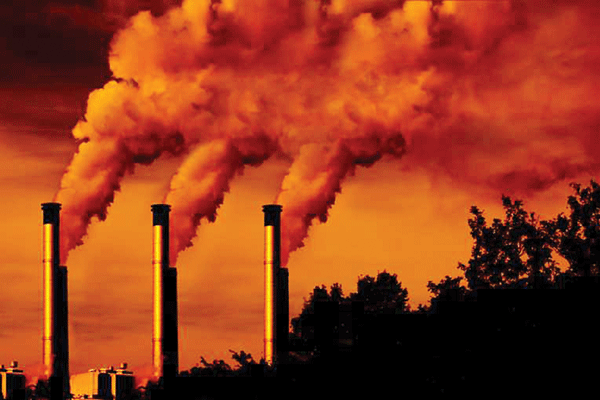
A LAYMAN’S view of opinion leaders is that they are experts with significant experience and comprehensive knowledge of issues.
guest column: PETER MAKWANYA
Opinion leaders are found in every discipline, but today’s discussion focuses on climate change.
In terms of our climate change scenario, obviously, officials from the ministry of Environment, Water and Climate become my first port of call.
Others are from the Meteorological Services Department, Civil Protection Unit (CPU), institutions of higher learning, civil society and the development practitioners.
Opinion leaders are always on the ground ready to share their opinions with the public and publics, as well as other sectors, who need their expertise.
Climate change opinion leaders are climate change experts, scientists, agricultural experts, the media and qualified government officials, whose views are representative enough to make positive contributions to the climate change questions.
It is also important to buttress the above views by an informed definition of opinion leaders. Gladwell (2002) points out that, climate change opinion leaders are, climate change specialists or ultimate knowledge brokers, political leaders, institutions, popular newspapers and magazine article writers, business leaders and other relevant stakeholders.
- Chamisa under fire over US$120K donation
- Mavhunga puts DeMbare into Chibuku quarterfinals
- Pension funds bet on Cabora Bassa oilfields
- Councils defy govt fire tender directive
Keep Reading
In this regard, as we try to source knowledgeable opinion leaders, no doubt the aspect of scholarship should reign supreme, first and foremost.
But in situations when scholars are largely disconnected from the climate change discourse and climate knowledge platforms, no meaningful solutions or interventions will be realised in attempts to solve the climate question.
The sidelining of expert climate opinion leaders and replacing them with those who are vocal and noisemakers will retard climate growth.
Climate change opinion leaders, with context-specific and comprehensive climate knowledge, can serve as vital links and information brokers between the government, civil society and development practitioners.
While opinion leaders are experts and highly informed in their own right, it is in developing countries that they have not been readily accepted and appreciated. Maybe, this has more to do with their ideological standpoints and inclinations.
The role of climate change opinion leaders is to shape the public’s preferences and expectations on climate issues, inform and conscientise fellow citizens, fill in the community-climate knowledge gaps as well as contributing to public behavioural changes towards the environment.
In short, they are environmental stewards and selfless guardians of nature, who want to contribute and leave a long-lasting art of conservation to be appreciated by future generations.
These opinion leaders are always ready to provide guidance, knowledge and share their opinions, persuade and convince others to adopt their sound climate change opinion as well as their cause for climate action.
It is a fact that a large number of opinion leaders do not necessarily occupy formal government positions of power and influence, but they are independent or privately employed, hence, the concerned government departments do not directly reach out to them, although they have the potential, but lack the will to do so.
Therefore, a spirit that is not contaminated and poisoned with deep-rooted suspicions needs to be cultivated and nurtured for selfless interventions.
Opinion leaders should not be distracted and need to stay focussed in order to keep the public sufficiently engaged in climate change matters.
The media, as the other discipline of opinion leaders, should stick to their role of informing, educating and empowering the public with climate change knowledge.
The media needs to propagate its role of opinion leadership on disseminating climate change knowledge and events taking place in the people’s areas, report them as they unfold for prompt and timely interventions by the responsible authorities.
But our local media’s major undoing is their lack of training in reporting issues of this nature.
The public looks to the media expecting to be sufficiently empowered with climate-related knowledge and information, but sadly, vibrant and versatile environmental reporting is underdone.
Despite the little knowledge that the Zimbabwean public get from a few vocal opinion leaders, as well as some government departments, very few Zimbabweans are seen engaging in attitudes and behaviours related to the regularisation of their carbon footprints, through a significant reduction of greenhouse gas emissions as well as practices that conserve energy.
Besides the lack of proactive engagement of versatile climate change opinion leaders by the responsible authorities, aggressive and sustainable communication campaigns remain weak and disengaging.
Therefore, it is the duty of climate change opinion leaders to promote strong citizen demand for policy changes that promote environmental sustainability.
Active and proactive climate change opinion leaders should help to boost the public’s motivation to conserve and protect the environment.
The public’s discussions on sustainable climate change actions need to be continuously nurtured, reviewed and strengthened.
This is done to improve their perceptions and engagement with climate change scenarios.
It is also the duty of opinion leaders to promote active climate change debates and climate change research activities that are cross-cutting in nature so as to involve everybody in this climate change discourse.
This would also enable the country to move forward with new climate knowledge, insights and findings that would benefit our local communities with life-long skills.
Peter Makwanya is a climate change communicator. He writes in his own capacity and can be contacted on: [email protected]











